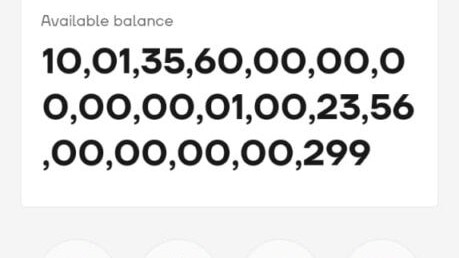The rises on the Tel Aviv Stock Exchange in the past two days despite the war with Iran have surprised several stock market experts. The main explanation they come up with is that investors are pricing in “the day after,” when the threat from Iran will have shrunk and Israel’s risk premium will decline. Meitav Investment House founder Zvi Stepak, however, suggests a different explanation.
He puts the spotlight on the small investor. “What’s happening here to a large extent is the FOMO (fear of missing out, E.G.) phenomenon,” Stepak says talking to “Globes.” “Investors say to themselves, ‘There are going to be falls, so let’s take advantage of them,’ because experience shows that the falls rapidly give way to rises. That’s what the public has become used to seeing. In order not to miss out on the rises, which the public believes will come, people buy.”
Indeed, since the sub-prime crisis of 2008, stock markets have recovered rapidly from big crises. “If we take the past five years, we had the Covid pandemic, which affected the entire world, and led to average falls of 35% on the stock markets within three weeks, but within a few months the markets recovered. A second event was the outbreak of the Swords of Iron war, which was followed by sharp falls, but again there was a fairly swift recovery, chiefly in 2024, after several achievements in the second half of that year,” he recalls, referring to the pager attack on Hezbollah and the killing of Hamas leader Yahya Sinwar.
Are Tel Aviv investors overoptimistic?
Looking ahead, Stepak assesses that the key to the future of the markets amid the war with Iran is time. “At the moment, the public believes that the war will probably be short, and that’s the optimistic scenario. In that event, the war will end within a couple of weeks, and the uncertainty over the Iranian nuclear threat will be removed, or the threat will at least be put back a few years. That scenario could be very positive for the stock market.”
Against that, he outlines the negative scenario, which could lead to damage to the Israeli market and to the stock market. “If we are dragged into a war of attrition, with drips of missiles falling on us every day, that’s another story altogether. Even if, in the end, we remove or postpone the nuclear threat, it will be a bad scenario. So far, we have had three days of battle the economic damage from which is estimated at NIS 1 billion. Add to that the military expenditure, which will increase the defense budget and require more debt offerings at higher interest rates because in this scenario Israel’s risk premium is liable to rise.”
RELATED ARTICLES
To that, Stepak adds in the prolonged war scenario the expectation of inflationary pressures. “Pressure will be created on the housing market, because people will lose their homes, and, as a temporary solution, will have to rent. That could create pressure in rents, which represent about a quarter of the Consumer Price Index. It also means that there will be no flights, so that we’ll be stuck here and will buy everything we need here. Pressure will thus be created on local prices, and the Bank of Israel will defer cutting the interest rate.”
These two scenarios will naturally have opposite effects on the local stock market. On the one hand, the optimistic scenario “could lead to lively economic activity, including a wave of flotations and mergers and acquisitions, not just locally but also involving foreign investors.” On the other hand, in the pessimistic scenario, we could see “growth in the rate of companies seeking debt settlements, and growing gaps between corporate and government bonds.”
Don’t change investment policy
Despite the very different scenarios that Stepak outlines, he believes that there is no room for large changes in investment portfolios. “Whoever believes in the optimistic scenario can increase the proportion of equities, and vice versa. But I have a piece of financial advice that I always return to – a person has to stick to his investment policy. This means that if he has decided that, both financially and psychologically, it suits him to allocate X percent of the portfolio to shares, then he should persist with that. If he’s optimistic, he might raise that by 2-3%, or the reverse if he’s pessimistic, but he should not make big changes in his long-term policy.”
In the negative scenario, in which the war drags on, the winners, in Stepak’s view, will be telecommunications stocks, as the companies are likely to gain from price rises and growth in usage. To that he adds the current prices of these stocks, which he says “are fairly reasonable, regardless of the war – prices have reached some kind of bottom, and they’re climbing, and I believe that they’ll continue to climb upwards.” Other sectors that he mentions are oil and gas stocks, which will benefit from rising prices, defense companies, and supermarket and fashion chains, which will also benefit from higher demand.
The losers in this scenario are likely to be residential construction companies, the sector that has stood out on the Tel Aviv Stock Exchange in the past two sessions. On Monday, the Tel Aviv Construction Index recorded its best day since 2020, completing a 10% two-day rise. Stepak is less optimistic about this sector, citing a shortage of workers, inactive building sites, and stock problems. “All the factors point to price falls in that sector, and the war could exacerbate that. I don’t see a scenario in which people will be enthusiastic about buying or investing in housing in a situation in which missiles are falling on them daily.”
Also liable to be hit are financial sector stocks, the banks and insurance companies, which have become investors’ favorites in the past two years. “If the economy goes into slowdown, because it won’t work at full productivity in a situation of missiles landing every day, the banks will have to increase their credit loss expenses. On the other hand, in the optimistic scenario, they will actually be the first to benefit. The sensitivity of bank and insurance company stocks to falls or rises on the capital market is very high. A 10% rise in the market will be a rise of 12-13% in the banks, and vice versa.”
In the optimistic scenario, Stepak sees broad-based rises on the stock market. Besides the banks and insurance companies, the financial sector in general could gain in relation to other sectors. This category includes the investment houses (among them Meitav, which he heads), and the non-bank credit companies. On the other hand, he sees defense stocks falling. “There will be a fall, because these stocks have risen very strongly. It’s true that this isn’t solely connected to events here; the defense companies are also benefitting from what’s happening elsewhere in the world, and from demand, because they have unique products. They won’t fall very sharply in my opinion, because global demand is much more important, but they could fall.”
Published by Globes, Israel business news – en.globes.co.il – on June 17, 2025.
© Copyright of Globes Publisher Itonut (1983) Ltd., 2025.








